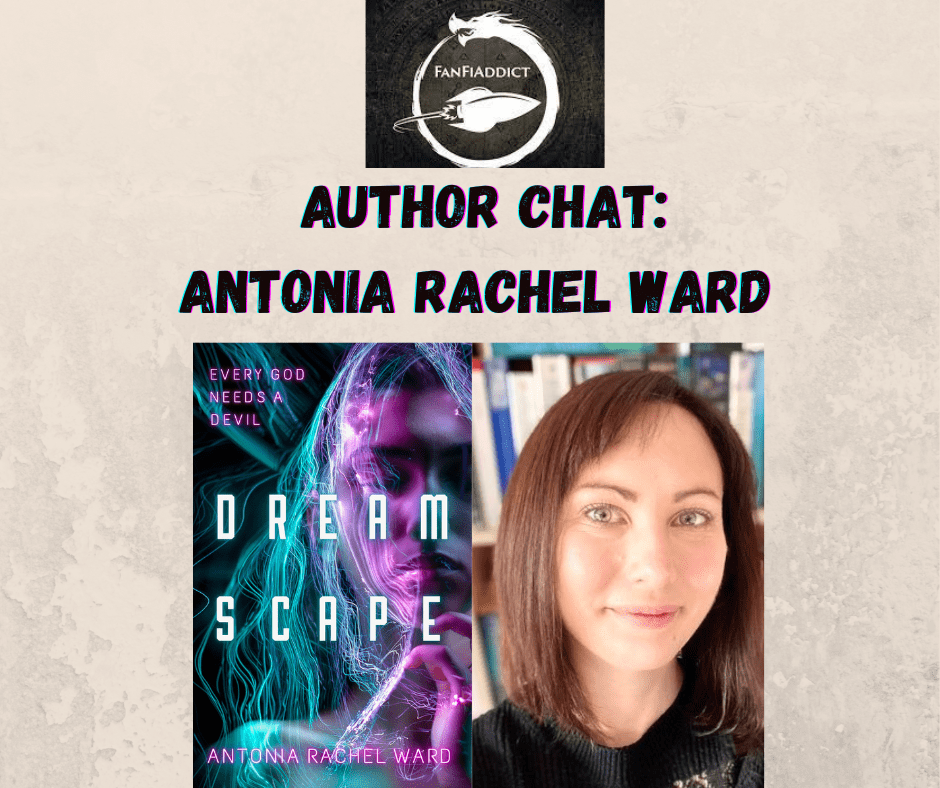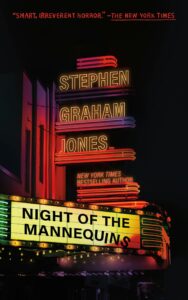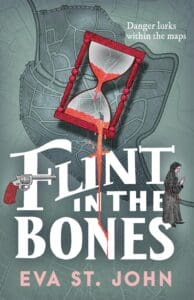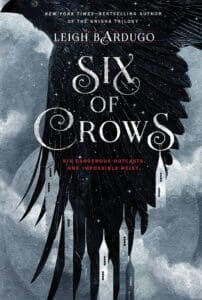
Antonia Rachel Ward is an author of horror and speculative fiction based in Cambridgeshire, UK. As well as a considerable body of short story work and poetry, she has published two novellas, Marionette and Attack of the Killer Tumbleweeds, and her first novel, DreamScape, is released on 24th October. You can find my 9.5/10 review of the latter book, a remarkable cyberpunk dreampunk gothic horror thriller mashup, here, in which I call it “a special, rich book by a writer you really need to be paying close attention to” and then get over-excited at all the Matrix references.
She is also the founder and editor-in-chief of Ghost Orchid Press, an acclaimed independent publisher who specialises in “horror, gothic, and supernatural fiction by fresh, new authors” and whose name is so cool I had to ask a question about it.
(See the end of the interview for links to buy Dreamscape.)
Q1) Hi Antonia, great to chat with you. Nice simple question to kick us off: what is DreamScape about, and why should we read it?
Hi! Thanks for having me along. DreamScape is the story of nineteen-year-old Wren, who is trying to start a new life on the other side of the world from her abusive stepfather when her little sister Bethany gets lost in an illegal virtual world known as the ‘DreamScape’ and falls into a coma. Feeling responsible, Wren realises that her only chance to save her sister is to venture in after her. It’s a wild ride, full of colourful characters–among them a rock star, a ballerina, and a cult acolyte–and I think it will appeal to readers who are looking for an exciting cyberpunk-style adventure that’s different from the norm.
Q2) This book seems to cover a lot of genres; off the top of my head it’s a techno-thriller, cyberpunk dreampunk neon-gothic horror surrealist sci-fi, with many others I could probably reel off if I was a bit cooler and more well-read. Why did you (successfully, I might add) cram so many styles together and what were your main influences and inspiration in doing so?
We writers can spend a lot of time worrying about what other people will think of what we write, how well it will sell, how well it will slot onto a particular table in a bookstore–and understandably so. But when I started DreamScape I decided that I just wanted to write the book I wanted to read, and that I would throw absolutely everything in there, no matter how crazy it seemed. I’ve always read a wide range of genres and I’ve never seen the need to adhere too strongly to conventions, so I love to mix things up and hopefully surprise readers a bit, too.
My inspirations included the cyberpunk and sci-fi novels I used to read as a teenager–I remember enjoying Lucifer’s Dragon by Jon Courtenay Grimwood, and the Otherland series by Tad Williams, although that was in the 90s and I don’t know how those books hold up nowadays. There’s also obvious parallels to be drawn with movies like The Matrix and Inception, which are favourites of mine. But I also love gothic horror so I included quite a hefty dash of that in there as well, and fans of The Crow might notice something a bit familiar about the rock star character, Erik Dacre!
I also want to add that a huge, huge inspiration of mine was the video game The Longest Journey and its successor, Dreamfall, in which the protagonists are able to walk between a futuristic, cyberpunk style world and a medieval fantasy one. A brilliant genre mashup. Not a lot of people seem to know of this game but I loved it so if you’re a fan, come and talk to me about it!
Q3) One of the central ideas of DreamScape – of leaving your body entirely and living out a life purely in the virtual world – isn’t portrayed as necessarily all it’s cracked up to be in this book, but I still get a sense from you as an author here that it’s something you’re fascinated by. Is there a part of you that would love to escape to DreamScape (or a less creepy version where you can’t fall down cracks into oblivion)?
My inspiration for writing about this topic came from being a writer, really. Or a reader. Anything where you spend a lot of time detaching from your mundane real life in order to enjoy an imaginary world. I think it’s a wonderful thing to be able to do, and that it’s important for all of us to retain our sense of imagination and wonder. And yet, there’s a stage at which escapism becomes damaging, when you’re running away from things in order not to have to deal with them. So yeah, I think I spend a lot of time escaping to my own personal DreamScape, every time I’m working on a book! The great thing about writing a world like the DreamScape is that literally anything is possible, and that’s such fun as a writer because there are no limits.
Q4) And a stupid follow-up question: What would your avatar be in DreamScape?
It would be great to have the chance to look any way I wanted! I’d definitely have to spend some time trying out some different styles and weird hair colours and such like. I always wanted pink hair like one of the DreamScape characters, Andromeda, for example, so maybe I’d give that a go.
Q5) There seem to be a couple of very different things going on in this book. For example, there’s a (very addictive) relationship love triangle between a ballet dancer and her new allegedly perfect husband and her toxic ex, a rock star who just won’t quit, which has a sort of romance novel feel to it, albeit quite a dark one. Then there’s this big world-altering Matrix-y sci-fi plot. This combination of the personal relationship drama with big picture SFF seems to be a motif of yours, can you talk me through why it’s so important that you write like this?
For me, it’s really important to balance a big plot with something more human and intimate. It doesn’t have to be romance, it could be some other relationship focus, but I think it brings heart and relatability to a story. I aim to hit on something that I find personally moving, as the writer, and hope that the reader will respond the same way.
In the case of DreamScape, I started with the image of a rock star and a ballerina–Erik and Lia–which was quite a fun, striking picture in my head, and then built the characters and their relationship from there. Weaving it into the main story provided a challenge, and I wrote so many scenes featuring Erik and Lia that didn’t make it into the eventual book. That was a tough call, but I wanted their story to complement rather than distract from the main plot. In the end, just for fun, I decided to make those deleted scenes into a novelette of their own. It’s called The Darkest Night and is available on Amazon if anyone’s interested!
Q6) One of the joys of this book is the thematic richness of it. As a reader I got strong toxic relationship/narcissism messages along with how cultism and god worship will always seep into even the most freest of societies, as well as the idea of how you maintain a sense of self in a world of no rules (and whether you’d want to). What were some of the key themes you were trying to explore (whether any of the above or new ones) and as a writer how do you do that without bashing the reader over the head with it?
It’s funny how, when writing, some themes will be consciously planned and others will emerge unconsciously. I didn’t go into DreamScape specifically wanting to write about cults or toxic relationships, but those things kind of made their way into the story unbidden. What I did want to write about, I think, was women trying to assert themselves personally and creatively in situations where their actions feel dictated by others. The main character, Wren, is an art student on the run from her abusive stepfather, learning to build her own life and express herself through her art away from his domineering influence. And then Lia, a ballerina, is trying to figure out how to break out of the roles dictated for her in a very literal way by choreographing her own dance instead of what she usually does, which is following steps created by others. I think the DreamScape and the characters most closely associated with it represent freedom and creativity, but also subconscious desires–which can sometimes be dark and scary and toxic as well as liberating.
Q7) You are the owner of acclaimed independent publisher Ghost Orchid Press. First off, that is an objectively cool name, what’s the etymology behind that?
Thank you! At some point in the past, I did a bit of research on rare flowers for a story I was writing and learned about the very rare and suitably spooky-looking ghost orchid. So when I was trying to come up with a unique name for a press, and a lot of my initial ideas were already taken, eventually I remembered the ghost orchid. It seemed the right combination of creepy/gothic and ornate for the image I wanted to convey.
Q8) What was your motivation for setting up your own press?
I worked as a bookseller for several years, and at the time it was a dream of mine to start my own press, because I felt that the range of books available from big publishers was too narrow and unappealing. I was sure that there must be so many deserving stories out there that were getting pushed aside by celebrity biographies and clones of the latest bestsellers. When the era of print-on-demand publishing really kicked in, and I myself had gained some experience helping to build a small business in an accounting role, what had once looked like an impossible pipe-dream started to seem like something I could actually achieve. So I gave it a go!
Q9) Especially in these interesting times in the publishing industry (the word interesting there doing more heavy lifting than Arnold Schwarzenegger in his prime) what are the challenges, but also the good things about running an indy press?
This year has definitely been really challenging! We’ve had rising prices for printing and postage, not to mention fluctuating interest rates which had a big impact since I’m in the UK and most of my customers are in the USA. All this was very costly when trying to fulfill a Kickstarter that had been planned and funded based on 2022 prices! Then there’s AI art and writing (which for the record I am very strongly against), the demise of Twitter… at times it’s felt like one blow after another.
But now, in the second half of the year, I feel like things are going pretty well. The great things about running a press are being able to work with talented authors and artists, and the satisfaction of creating a beautiful end product which readers can enjoy and share. I also really relish being part of a wider indie publishing community. I now have friends amongst authors, editors and other publishers and there’s this great sense that we’re all pulling together to achieve a shared goal of getting brilliant stories out there and finding readers for them.
Q10) Why do you think authors want to work with you rather than either trying traditional publishing or self-publishing? What is the unique appeal of the small press?
There are advantages and disadvantages to every publishing option, and I would urge authors to give plenty of thought to what will work best for them, as well as carefully researching anywhere they intend to approach with their work. A legitimate small indie press might not have much of a marketing budget, and much of the work might be done by one or two people, but we can also work very closely with authors as more of an equal collaboration than you might get from a bigger publisher, and the royalty split tends to reflect this as well, being more generous towards the author. I would also advise authors that if you’re looking at small presses, never go with anyone who asks you to pay to be published! The money should flow from publisher to author, never the other way around.
Q11) What one thing would you change about the publishing industry?
It is my personal opinion that there’s a big issue with snobbishness in publishing. I’m familiar mainly with the situation in the UK but I think this is a problem elsewhere as well. People look down on self-published authors or small print-on-demand presses because there’s this perception that the quality isn’t as good which, as an avid reader myself, I can assure you is not the case. And the trouble is, this attitude causes closed doors all over the place. It’s difficult to persuade bookstores to stock print-on-demand titles; it’s difficult to get reviews in bigger magazines. All these things disproportionately affect marginalised authors as well. I would love it if the industry in general would become more welcoming and open to new voices and different ways of working.
Q12) Finally, what can readers expect from you going forward? Can you tease us with any info on your next novel? And what lies in store for Ghost Orchid Press?
I’m working on something right now that’s a return to the kind of erotic gothic horror I tackled in my first novella, Marionette. So that’s a lot of fun, and I think there will be an announcement regarding that very soon. But until then, my lips remain sealed!
As for Ghost Orchid Press, we have just released a dark fantasy novel by Croatian author Jelena Dunato, Dark Woods, Deep Water, and next month we’re publishing Winter Harvest, which is a Demeter retelling by Ioanna Papadopoulou, so keep an eye out for those. I’m now working on plans for next year, and I’m enjoying looking towards the future!
You can buy DreamScape at Amazon here, Barnes and Noble here and Waterstones here. Find out more about Antonia here.




Leave a Reply